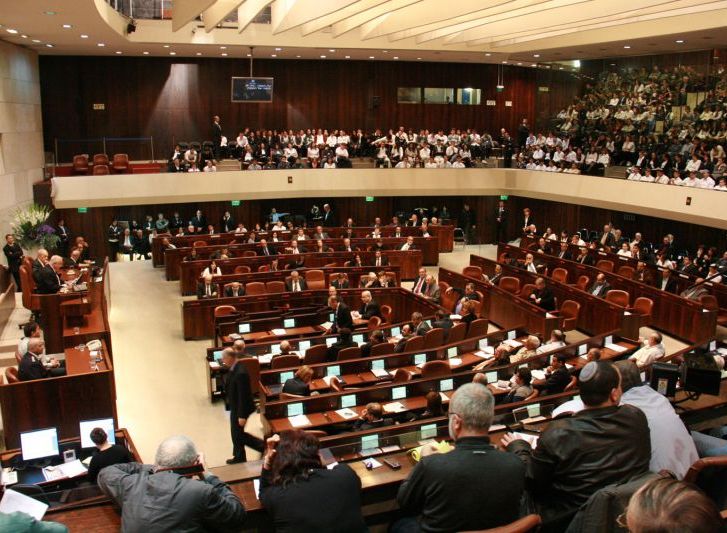Supreme Court Orders State to Explain Why the Citizenship Law Banning Family Unification Should not be Struck Down as Unconstitutional
Today, 6 May 2008, the Israeli Supreme Court issued an order nisi (order to show cause) on a petition filed by Adalah challenging the constitutionality of the Citizenship and Entry into Israel Law. The order obliges the state to show cause as to why the court should not strike down the law, within 60 days.
An expanded panel of seven justices of the Israeli Supreme Court held a hearing on four petitions challenging the Citizenship Law yesterday, 5 May 2008. This new law, enacted in March 2007, expands the scope of the existing law, a temporary order which was originally passed in July 2003. The new law not only prevents family unification between citizens of the State of Israel and Palestinian residents of the Occupied Palestinian Territory (OPT), but also bans foreign spouses who are residents or citizens of Iran, Iraq, Syria or Lebanon, defined in the law as “enemy states”. Moreover, the ban also applies to “anyone living in an area in which operations that constitute a threat to the State of Israel are being carried out,” according to security reports presented to the government. The new law is valid until 31 July 2008.
In May 2007, Adalah petitioned the Supreme Court on behalf of two Arab families against the Interior Ministry challenging the constitutionality of the law and demand its cancellation. The petitioners also demanded that family unification status be determined free of discrimination on the basis on nationality. Adalah further argued in the petition that the new law prevents Palestinian citizens of Israel from having contact with their families and members of the Arab nation and the Palestinian people in breach of international human rights law. Adalah's General Director Attorney Hassan Jabareen and Adalah Attorney Sawsan Zaher represented the petitioners before the court.
Adalah argued in the petition that the law creates three tracks of naturalization in the State of Israel. The first, highest track, is for Jewish people, who can gain citizenship immediately and automatically under the Law of Return (1950). The second track is for foreigners, to whom the graduated procedure applies, allowing them to obtain Israeli residency or citizenship status over a four-year period from the date of submitting the application. The third, lowest track, is for the spouses of Arabs citizens not from the OPT, Iran, Iraq, Syria or Lebanon. Adalah stressed that the creation of these tracks, which is based essentially on the nationality of the applicant, constitutes racial discrimination, and contradicts the principle of equality and prior decisions of the Supreme Court.
The Universal Declaration of Human Rights (1948) imposes the duty on UN member states, including Israel, to respect the principle of non-discrimination for every person. Therefore Adalah argued in the petition that although any state in the world can prevent specific persons from living in it, it cannot deprive a person of his or her rights due solely to his or her national belonging, particularly if that person has a direct family link to citizens of that state.
The seven-justice panel of the Supreme Court that heard the case was comprised of Chief Justice Beinisch, Deputy Chief Justice Rivlin, and Justices Procaccia, Levy, Gronis, Naor and Jubran. The four petitions pending before the court were filed by MK Zahava Gal-On (Meretz), the Association for Civil Rights in Israel, Adalah, and HaMoked: The Center for the Defence of the Individual. Citation: H.C. 830/07, Adalah v. The Minister of the Interior, et al.
For more information see, Adalah News Update, “Adalah Petitions Supreme Court to Overturn New Citizenship Law Banning Family Unification: Law Prevents Palestinian Citizens of Israel from Being Connected to the Palestinian People and Members of the Arab Nation,” 6 June 2007


















